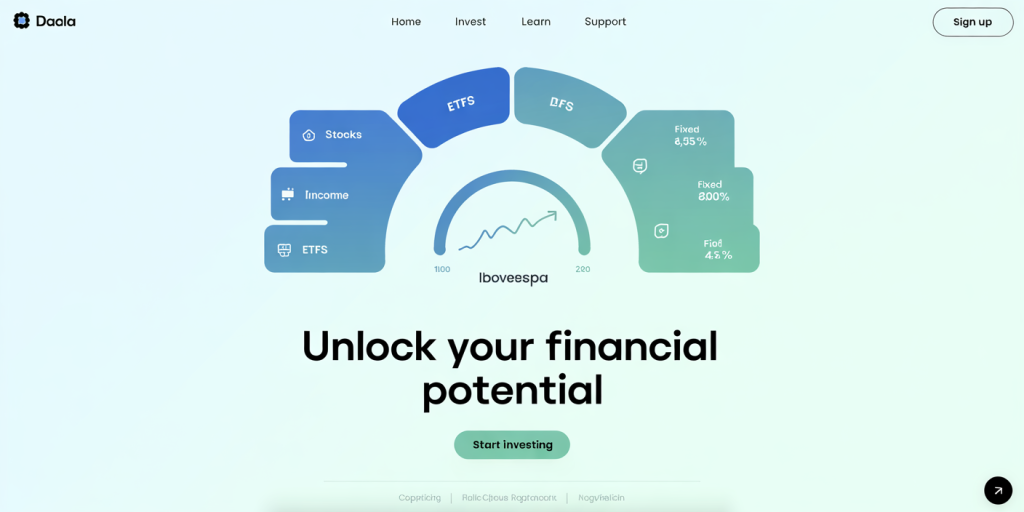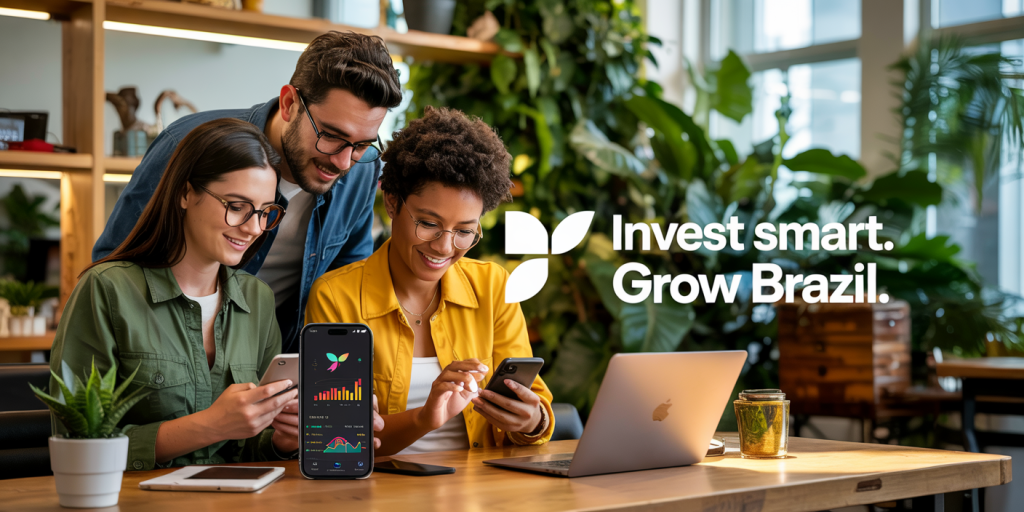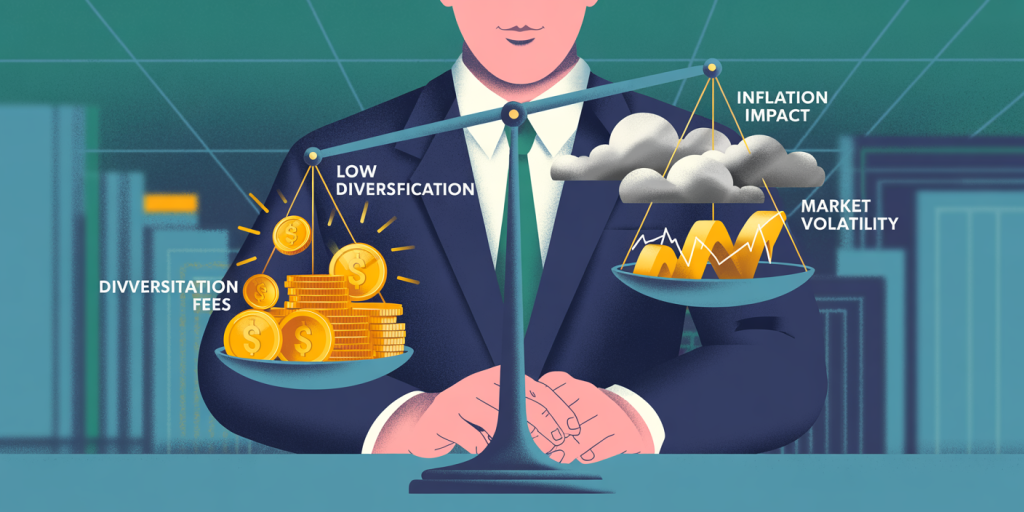Platforms to Automate Your Investments in Brazil: Pros and Cons
In recent years, Brazil’s financial market has experienced significant technological advancements, making automated investment platforms increasingly popular among both novice and seasoned investors. These platforms use algorithms and artificial intelligence to manage portfolios with minimal human intervention, offering a more hands-off investment approach. As Brazil emerges as one of Latin America’s leading fintech hubs, understanding the advantages and potential pitfalls of automated investment platforms is essential for anyone looking to diversify their financial strategies in this dynamic environment.

Automated investment platforms, often referred to as robo-advisors, provide tailored investment solutions by analyzing user profiles, risk tolerance, and financial goals. With Brazil’s rising internet penetration, estimated at over 82% as of 2023 (CETIC.br), and an increasing number of young investors entering the stock market, these platforms have gained mass appeal. However, the choice of the right platform requires an in-depth understanding of various features such as fees, asset options, regulatory compliance, and customer support. This article explores prominent platforms available in Brazil, weighing their pros and cons to offer clarity for prospective investors.

—
The Rise of Automated Investment Platforms in Brazil
Brazil has witnessed a surge in automated investment platforms over the last decade, fueled by fintech innovation and increased appetite for investment among younger demographics. According to data from B3, Brazil’s stock exchange, the number of individual investors spiked to over 4.4 million by the end of 2023, growing by nearly 35% year on year. This growth is partly attributable to the accessibility provided by robo-advisors, which simplify investment decisions and reduce the need for direct broker interaction.
In addition, Brazil’s high inflation rates, averaging 5.79% in 2023 (IBGE), have pushed many to seek alternatives beyond traditional savings accounts. Automated platforms offer diversified portfolios that include stocks, bonds, real estate investment trusts (REITs), and fixed income. These platforms also embrace local nuances, such as index funds tied to the Ibovespa or international ETFs, which help investors mitigate country-specific risks while capitalizing on global trends.
—
Overview of Popular Automated Investment Platforms in Brazil
Several platforms dominate the Brazilian automated investment market, each catering to distinct investor profiles and preferences. Here is a comparative table to quickly understand their key features:
| Platform | Minimum Investment | Fees | Asset Types Available | User Interface | Regulatory Status |
|---|---|---|---|---|---|
| Magnetis | BRL 1,000 | 0.3% to 0.8% annually | ETFs, Fixed income, Stocks | Intuitive, mobile-friendly | Registered with CVM (Brazilian SEC) |
| Warren | No minimum | 0.20% to 0.99% | Mutual funds, ETFs | Simple and clean | CVM-regulated |
| Vérios | BRL 1,000 | Around 0.8% | ETFs, Fixed income | Robust, web-based | CVM-licensed |
| Órama | BRL 1,000 | No fee (fee included in fund expense ratio) | Funds, Fixed income, Stocks | User-friendly | Authorized by CVM |
For example, Magnetis, a pioneer in the Brazilian robo-advisor landscape, boasts a flexible fee structure and emphasizes personalized asset allocation. Conversely, Warren stands out for its lack of minimum investment requirement and social investing features, appealing to beginners seeking community-based insights.

—
Advantages of Using Automated Investment Platforms
Automated investment platforms offer numerous benefits for Brazilian investors, especially those seeking an efficient, low-cost method to grow their wealth. Firstly, automation significantly reduces the need for constant market monitoring. The platforms handle portfolio rebalancing, tax optimization, and diversification based on predefined algorithms. This capability is valuable for investors who may lack time or deep technical expertise.
Additionally, these platforms democratize access to investment products traditionally available only to high-net-worth individuals or institutional investors. For instance, through ETFs and international funds, Brazilian users can easily allocate capital to sectors such as technology or renewable energy, which are not abundantly represented on local markets. According to a 2023 report by Statista, ETFs in Brazil grew by 27% in assets under management year-over-year, indicating growing investor interest facilitated by digital tools.
Moreover, many platforms offer educational content and simulated portfolios, empowering users to make informed decisions. This user-centric approach enhances financial literacy, a crucial factor considering Brazil ranks among countries with the lowest financial literacy rates globally (OECD, 2022).
—
Drawbacks and Challenges of Automated Investing in Brazil
Despite their promise, automated investment platforms also present some challenges specific to the Brazilian market. One of the primary concerns is the fee structure. While robo-advisors typically charge lower fees than traditional financial advisors, the cumulative impact—especially for long-term investors—can be substantial. Arbitration of fees combined with the expense ratios of underlying funds can reduce net returns, sometimes without investors accurately grasping the cost.
Secondly, local market volatility and regulatory particularities can affect platform performance. Brazil’s economy is susceptible to political changes, currency fluctuations, and inflation spikes, potentially resulting in portfolio instability. For example, platforms tied heavily to local equity markets may expose users to abrupt changes resulting from electoral cycles or shifts in fiscal policy.
There is also the issue of limited human interaction. Although many platforms offer support, fully automated investing lacks the personalized advice that a dedicated financial advisor might provide during complex market environments or personal financial crises. A 2022 survey by EXAME magazine highlighted that about 38% of Brazilian investors still prefer human advisers over robo-advisors due to trust and customization concerns.
—
Case Studies: Real-world Experiences with Brazilian Robo-Advisors
To provide practical insight, consider two real scenarios involving Brazilian investors using automated platforms:
Case 1: João, a 30-year-old entrepreneur from São Paulo, started investing with Warren in 2022. He valued the platform’s no minimum investment policy and the ability to invest as little as BRL 10. Over 18 months, João diversified his portfolio into both local fixed income and international ETFs without needing deep investment knowledge. Even though market downturns hit Brazil in 2023, João’s diversified automated portfolio helped mitigate losses compared to a concentrated stock-only approach.
Case 2: Maria, a 45-year-old teacher from Recife, opted for Magnetis given their more personalized portfolio analysis service. However, she noted the higher fee rates slightly cut into her returns given smaller investment size. Maria also encountered limitations in platform support during market volatility, underscoring the importance of human advisory options for investors requiring personalized guidance.
These cases reveal that platform choice and individual expectations significantly influence the investment experience, highlighting the importance of aligning investor profile with platform strengths.
—
Comparative Analysis of Platform Fees and Services
To further guide Brazilian investors, the table below breaks down common fees and services offered by the leading platforms:
| Platform | Annual Fee (%) | Fund Expense Ratio (%) | Financial Planning Tools | Customer Support Channels | Notes |
|---|---|---|---|---|---|
| Magnetis | 0.3% – 0.8% | 0.10% – 0.30% | Yes, portfolio suggestions | Chat, email, phone | Fee declines with higher investments |
| Warren | 0.20% – 0.99% | Included in platform fee | Goal tracking, educational blog | App chat, email | No minimum balance |
| Vérios | Around 0.8% | 0.15% – 0.25% | Risk profile assessment | Email support | Focus on fixed income and ETFs |
| Órama | None to platform user (fund fees apply) | 0.20%-0.60% | Investment calculators | Phone, email, in-app chat | More traditional fund selection process |
Based on this comparison, investors with smaller portfolios might prefer Warren due to no minimums and a transparent fee system, while those interested in highly personalized portfolios might lean toward Magnetis despite its higher fees.
—
Future Perspectives for Automated Investing Platforms in Brazil
Looking ahead, the automated investment landscape in Brazil promises continued growth and innovation. With the Central Bank of Brazil promoting open banking and improved fintech regulation, investor protections and interoperability between financial institutions are expected to enhance platform offerings.
Emerging technologies such as artificial intelligence and machine learning will refine portfolio customization and risk analysis. Platforms are likely to expand asset classes to include cryptocurrencies and ESG (Environmental, Social, and Governance) investments, catering to evolving investor values. According to a fintech report by PwC Brazil (2024), over 60% of digital investment users express interest in sustainable investing, signaling a significant trend for future product development.
Furthermore, increasing collaboration between automated platforms and traditional banks might bridge trust gaps, combining technology efficiency with personalized financial advisory. This hybrid approach would appeal to a broader client base, especially those skeptical of fully automated management.
As financial literacy improves alongside tech adoption, Brazilian investors will gain greater confidence and control, positioning automated investment platforms as a cornerstone of the country’s wealth-building ecosystem.
—
Automated investment platforms in Brazil have revolutionized how people approach personal finance, blending technology with accessibility. While each platform comes with unique benefits and caveats, the growing market offers something for virtually every investor type—from beginners to experts. By carefully evaluating features, costs, and support systems in line with individual goals, investors can harness automation as a powerful tool to navigate Brazil’s vibrant, sometimes volatile, financial landscape.
